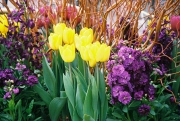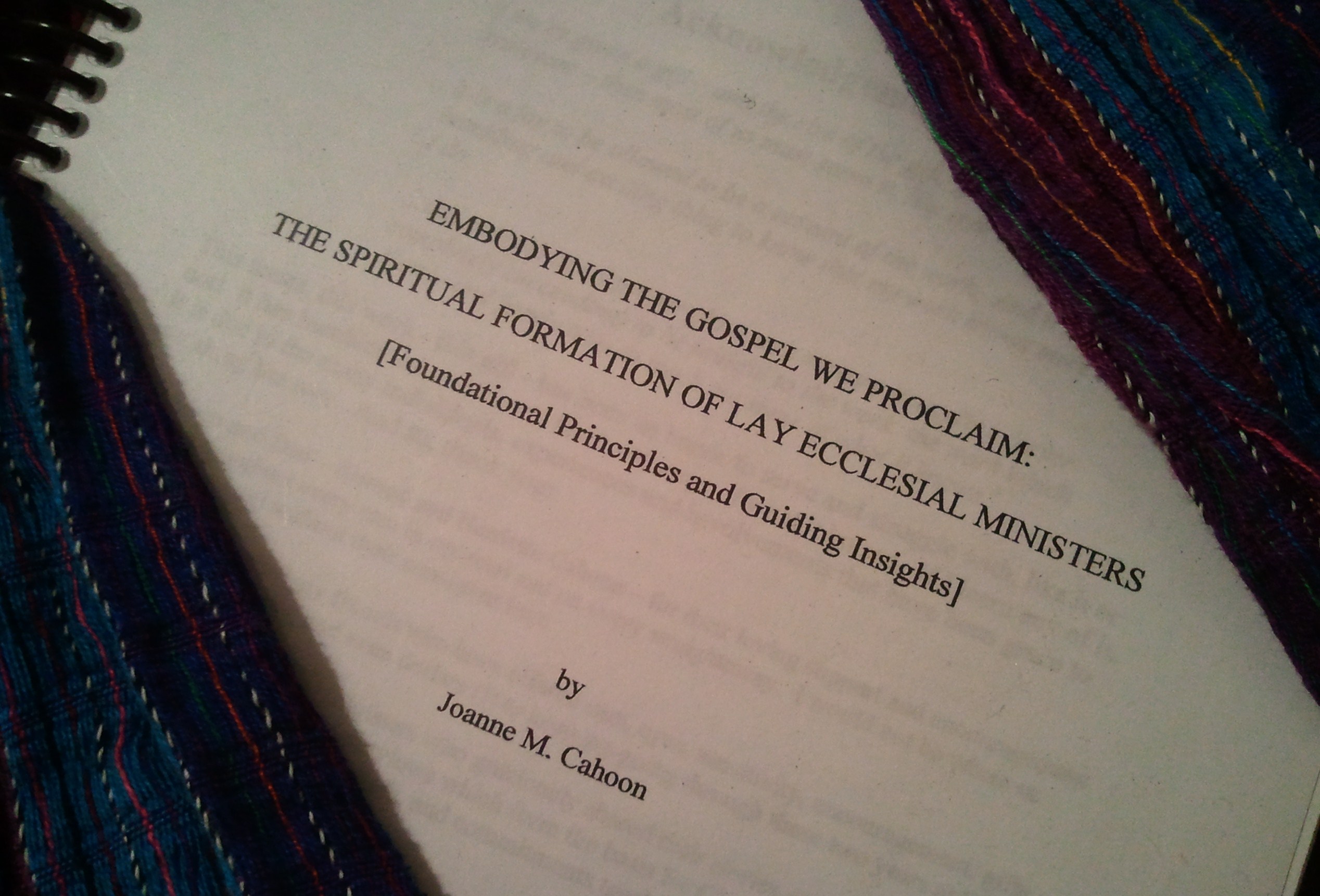Of all that God has shown me
I can speak just the smallest word,
Not more than a honey bee
Takes on her foot
From an overspilling jar.
– Mechthild of Magdeburg
— so beautiful, yes? take it in! it seems to me these days that any words that we can say about what is essential are really quite small —
We are poor and little, weak and clueless. Love and truth, life and death, sickness and health, growth and decline, sadness and joy, conflict and peace, violence and tenderness – even what is happening in our own minds and hearts; so little about these things comes into sharp focus for us. We have no answers, small understanding, and come to wisdom slowly. Can we smile at this?
Of course, we are wondrous. I haven’t forgotten. But we (and certainly I) don’t dwell with the wondrous enough. We are distracted by what we do not know, ways we have not done or been something we intuit is extremely important (though our words fail here too), or who we have not yet, or may not ever, become. We seek answers. We remember suffering and ask questions. We seek identity and home.
We do not know. We experience longing, and sometimes deep pain. We are not — something — our hearts tell us. (Thank God that “God is greater than our hearts”! 1 John 3:20). Yet perhaps our smallness and the way we experience life within our very limitation is wonder too. (I know – it doesn’t feel wondrous sometimes! But don’t the words sound as if there’s something to them? Hmm…)
Mechthild’s bee reminds us of who we are. It’s beautiful really. This small honey bee’s foot finds sweet stickiness in an overflowing abundance. We buzz about a world of overflowing honey jars. We might stop here. Our view, she seems to say, is so small – our capacity infinitesimal. But listen to Mechthild’s premise and find new hope in knowing that you and I are amazing.
Of all that God has shown me… We are ones who wake into life learning that we are constantly addressed and “shown things” by the Creator of all that is! This is the One who somehow is and was before all things (duh… grasp that one with your brain!), who brought all into being and intends our freedom and ability to learn and love. We wake up already deeply in a relationship that is our truest home; a relationship we did not initiate, could not earn, and are invited to remain in always and forever. Does that not make us amazing? We fascinate the Creator of the smallest quarks and the largest galaxies, who delights in showing us things and being with us! Augustine spoke of humans as having capax dei… a capacity for God. We are made that way – hard wired. Wouldn’t it be lovely to really believe that we have the capacity to delight God by simply receiving what God would show us, what God would give.
And God shows us much, each day, each moment.
If we cultivate (through REPEATED practice!) that Advent wakefulness December reminded us of as a way of living, we might find a million’s million grams of ‘honey’ in which our feet are stuck, and through which God speaks to us. Will we learn to listen to the Creator’s love-talk?
As I write, these “small” things surround me, and I believe “show” me something: music’s beauty, the skill and passion of the harpist, the oft-forgotten wonder of my ears and the way they take in sound like fingers take in texture or my palate takes in flavor, the wonder of how hands and thumbs and muscles and holding work (as my left thumb and wrist speak to me in ache from a fall), the way vegetables actually feel good as you eat them, the warmth of heart brought by a quick gaze at a sleeping crazy-beloved dog, the essence of connection and longing for presence found in family members’ smiles and eyes on pictures on the wall, the flickering self-giving light of a candle, the hand stitched gift that says ‘I know and love you’, the diversity of place and people I’ve visited in playful koala and moose images, the delight in coffee’s smell and taste, the wonder of recorded words in books and the people whose stories and gifts gave them birth. These are just a few of the wonders within 6 feet of where I sit. Even within that range I cannot adequately capture all of what God shows me! Take a few moments. What’s around you? If you listen, is God showing you some small thing through the honey on your foot in this moment? We stand sticky in wonders and mystery all the time!
I have wondered why I/why we then spend so much energy anxious or upset about what we cannot understand or do not know. Why are we surprised when we are just bee-size? Why does it pain us so not to find answers, wrap up what we consider essential questions, or to simply walk our days in unknowing, with a bit of ongoing stumbling more characteristic than steady gait when we walk around the larger questions? I do not mean we are not explorers of lands and seas, of space, of body and spirit, of all that our curiosity draws us to learn of, or that human or creation’s need draws us to discover. I do not argue with our unfolding knowledge, with study, with the sketches we make of what is important that become science texts or symphonies, masterpieces or family traditions.
 But we are those who often experience life as ones who see “tatters of clearness through a pervading obscurity”.* We can only speak just the smallest word, Mechthild tells us, of what we are shown, even of what we experience. Is that awful? We seem to think so. Difficult, yes, of course; especially when we speak of loss or death or isolation or violence or other hard things. But our analyzing endlessly or “parking in the circle” of difficult or the excruciatingly painful will not create an okay-ness if we put in enough time or effort! Instead, we run the risk of forgetting to notice the other honey – the amazing and wondrous. And we will forget the merits of our littleness.
But we are those who often experience life as ones who see “tatters of clearness through a pervading obscurity”.* We can only speak just the smallest word, Mechthild tells us, of what we are shown, even of what we experience. Is that awful? We seem to think so. Difficult, yes, of course; especially when we speak of loss or death or isolation or violence or other hard things. But our analyzing endlessly or “parking in the circle” of difficult or the excruciatingly painful will not create an okay-ness if we put in enough time or effort! Instead, we run the risk of forgetting to notice the other honey – the amazing and wondrous. And we will forget the merits of our littleness.
You and I must learn to live and thrive in a place of acceptance and celebration of the limits and wonders of being human.
Okay. What do we know? Not much. What can we hold onto in awareness? Only the smallest fraction, like Mechthild’s bee’s honeyed foot. What if the Incarnation speaks to how to be with this? It does! Do we not believe Jesus shows us how to live human life as it can be lived?
At Christmas, we remember that we are not only people addressed by God everyday and over history, shown all kinds of wonders. Mechthild is correct that we are only able to say the smallest word about life, but God’s Word came to us – containing every word and hope. And the Creator of All chose to enter the very reality of unknowing and foggy perceiving we resist – this soil and sod that is the stuff of being human. And by so joining it, graced it fully. Into the middle of the not knowing, this fog of understanding where clarity is an exception in our experience: THIS is the very reality that God chose to enter. The One who is somehow Three, who existed before the cosmos and creation, chose to fully enter the flesh-ly story of a people and a world in one corner of one planet in one womb as one child with one human lifetime. No wonder we speak of the Word leaping down from the heavens! What a leap! God entering such limits! Unbelievable!
Or is it? Doesn’t such entering in tell us something about who God has always been, well before that holy night we sing about on Christmas Eve? We miss the fact that Incarnation says something about power. Power is not control. It is not insight. It is not understanding and identifying and categorizing and figuring all out. Real power – true power – is love. It is Love which leaps and enters and is WITH. (It’s Trinity too – for that’s the leaping love of the Three which makes them One in ongoing self-giving.) The One Who Loves Us All is this very Love, in kind and content. This is the most amazing power you and I can ever encounter. In a way, it’s a no-brainer. The Christmas Story in Luke is all about persons who don’t have all (or much) in their control. The scene looks out of whack; a babe in an animal’s feed trough, a woman who said yes to an angel when ‘how’ was never answered, a man who welcomed a pregnant bride into his life and heart with little sensical explanation. Control and understanding are not the point, no matter that we might want to make it so sometimes. Relationship and being with and delight and being who we are in this love — every day and moment — that’s the point.
God leaps in love. God is a leap in love. This is what we mean when some say “God is mission”. God must go out in love. And so must we. It’s who God is, not what God does. It’s who we are, not what we do.
The most powerful achievements in our lives have little do with understanding all the turns and wherefores in our own or others’ journeys, or even affecting them. Our power lies in awareness and acceptance of the love story we are created a part of, and a Love embracing us and sending us leaping out to love. As Pope Francis has often repeated this season, that reaching out should particularly be to the poor. God came to us, poor small honeybees so loved by God and able to give God delight. And our poverty is what God can fill. We who would join the Incarnation mystery by bringing Christ to birth in our world and lives must also go where love goes… it leaps to those with greatest emptiness and need. We are those who have received. We are those who must also leap.
So, let’s worry less about getting answers to all life’s questions. Let’s live in the relationship where God shows us many things. Let us embrace our capax dei, the gift that is our capacity for God, hard-wired in by the Creator. Let’s value one another – especially those in need or pain – with the same leaping love God models for us in Jesus’ coming. Let us give up trying to understand the Incarnation, and live its mystery by embodying an embrace of humanness that the Creator chose to show us in Christ. Let us glance at the babe, and learn from the young family how to survive and thrive in unknowing, in following, in faithfulness.
 I am better able to walk in this mystery as I listen to the smallest words of others about this journey we are all on. Mechthild, Madeleine, Maura, Jessica — these poets help me listen and learn. They hearten me, as they learn and share what God has shown them. I hope they invite you to attention to what God shows you too this day. Whatever that may be, it is good. Trust that, with me. Don’t worry that you don’t get the whole honey-pot…. or a few of them. Enjoy, with God, the bit of honey on your foot this day. And I will too, with you! BbbbuuuuuuZZZZZzzzzzzzzz!
I am better able to walk in this mystery as I listen to the smallest words of others about this journey we are all on. Mechthild, Madeleine, Maura, Jessica — these poets help me listen and learn. They hearten me, as they learn and share what God has shown them. I hope they invite you to attention to what God shows you too this day. Whatever that may be, it is good. Trust that, with me. Don’t worry that you don’t get the whole honey-pot…. or a few of them. Enjoy, with God, the bit of honey on your foot this day. And I will too, with you! BbbbuuuuuuZZZZZzzzzzzzzz!
* The source of this image is Annie Dillard in The Pilgrim at Tinker Creek (see ABOUT THE BLOG). There she describes the experience of being human very much like the experience of walking in the fog. We see “tatters of clearness through a pervading obscurity”.












